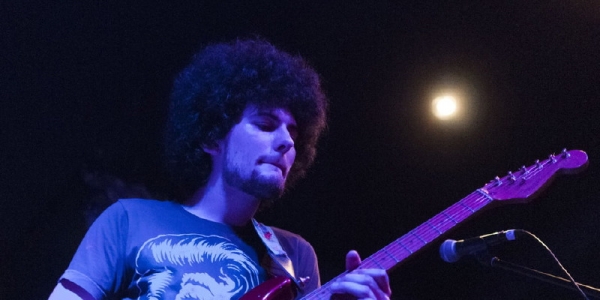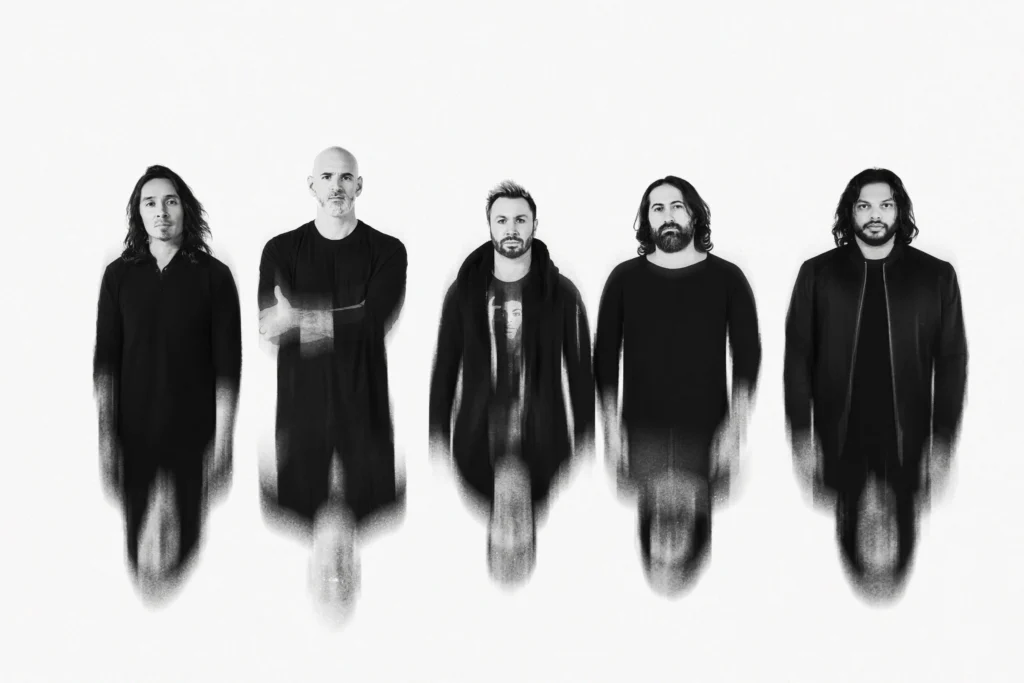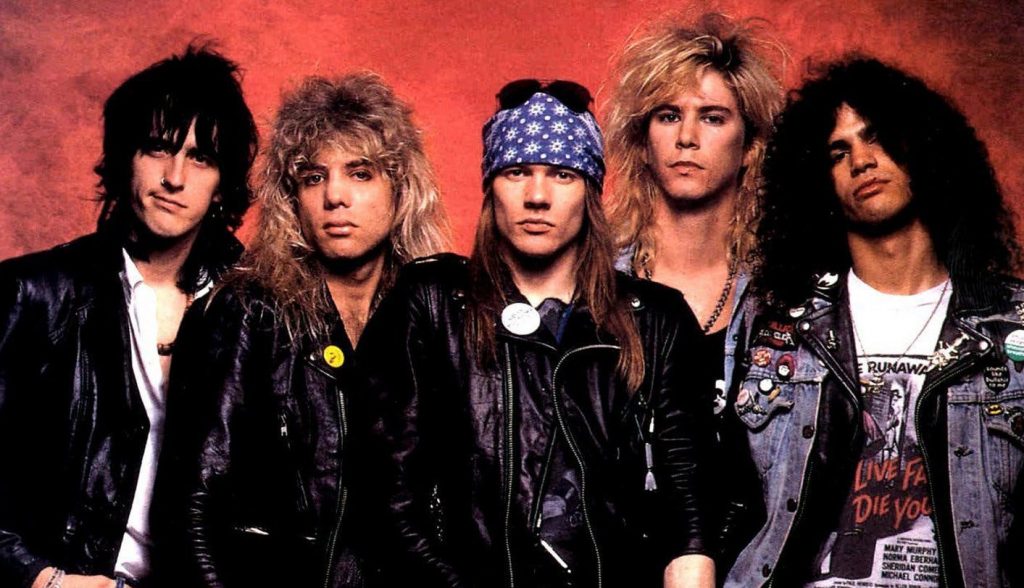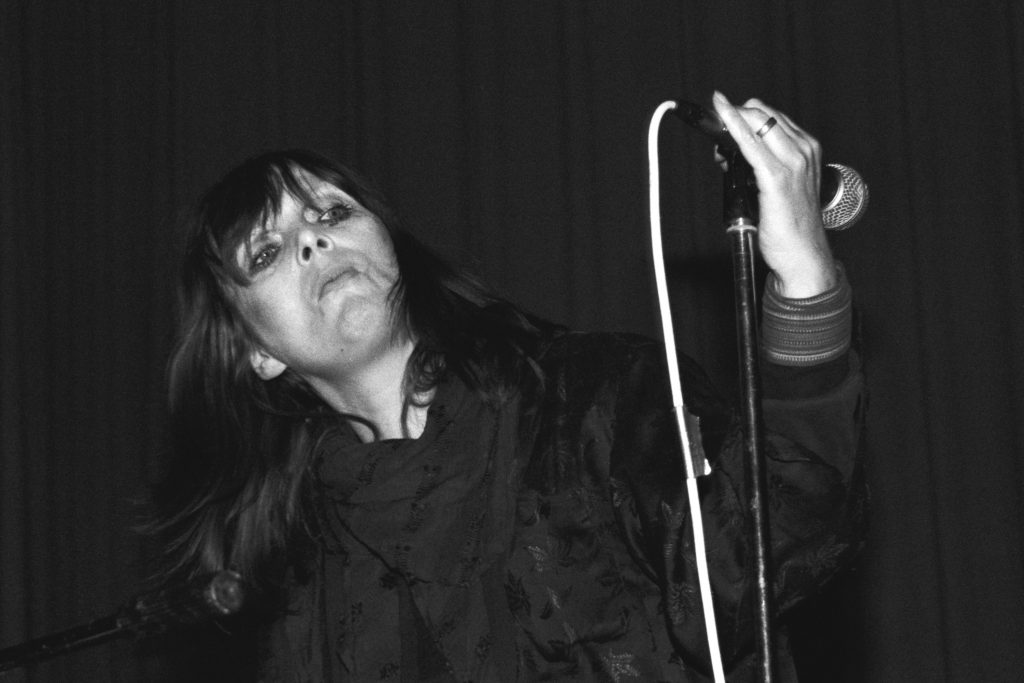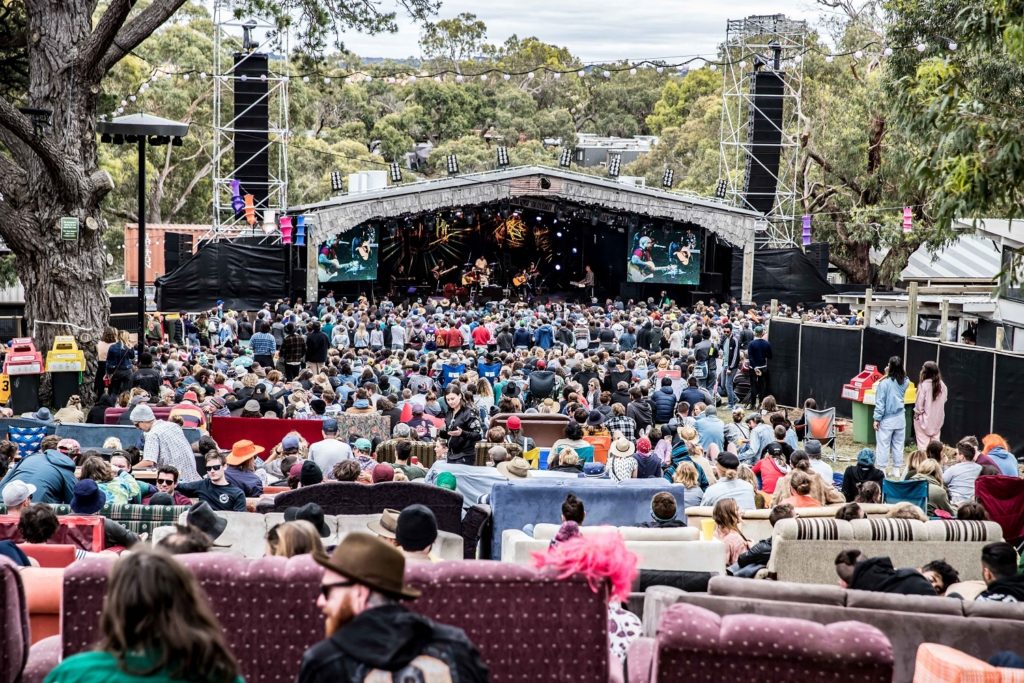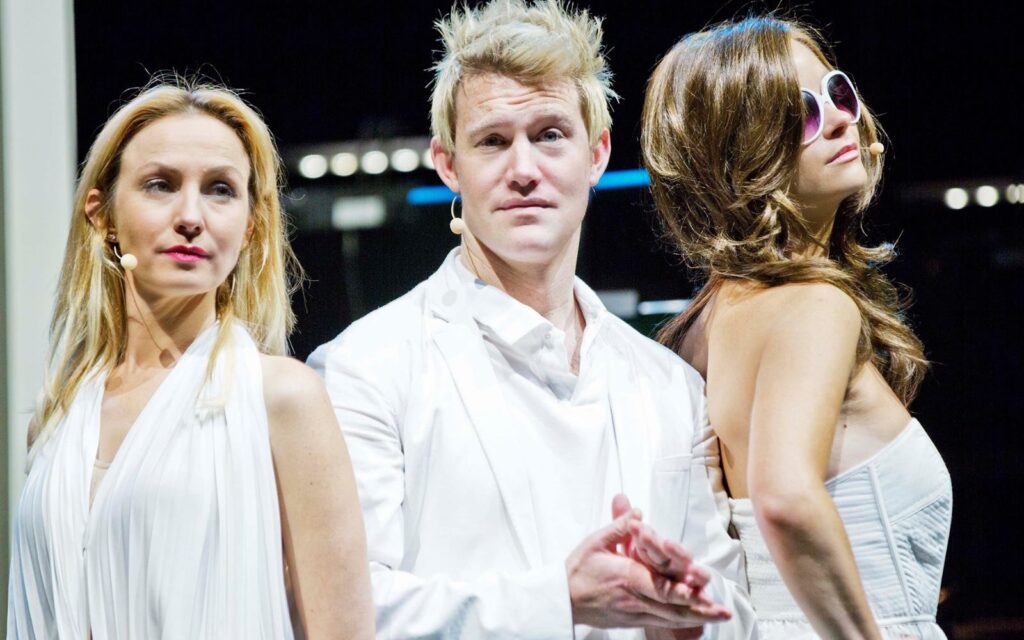“I’m really proud of the album that we’ve made. I think it’s really ambitious. Even now, when we’re playing the new songs live they really stand up as being super strong songs and also tons of fun to play.”
Recording a double album has been a longstanding desire for the close knit three-piece but Johnston is quick to identify that many artists have fumbled with the dual-disc format.
“We went back and did our research, we found out there actually weren’t that many great double albums. There were a few, London Calling and The White Album, but apart from that it’s tough. As a kid I thought I loved Mellon Collie and the Infinite Sadness by Smashing Pumpkins, but I’ve recently listened to it and realised there’s only a few great songs.”
Nevertheless, Johnston reveals the band believed they could be the exception to the rule and craft an entirely enduring set of songs.
“We’re really trying to break the mould and make every single second vital. It’s not a really self-indulgent, really weighty album. It’s meant to be an enjoyable listen. We’re hoping to make the first double album that’s not too self-indulgent and too heavy to listen to.”
They didn’t actually set out with the intention to make a double album but a wealth of songs that couldn’t be swept aside necessitated the expanded format.
“It’s not like Simon (Neil, vocals/guitar) said, ‘I’m going to write a double album,’ we just ended up with that many songs. We had 45 songs that he’d written over a couple of months and we demoed them all at home in our farm studio and they just all sounded so good. Even the 20-something songs that we took to America, it was so hard to whittle it down to that, never-mind to take another three or four off to make it 20,” says Johnston.
The album follows a thematic progression; side one is a depiction of upset and injury and side two is much more hopeful. However, Johnston explains that when compiling the record they didn’t fastidiously adhere to the concept.
“The worst thing to do would be make music that’s contrived and that’s been forced into a corner because of a decision we’ve made. I think it was more important the songs were strong and lyrically it just turned out that they do fall into these categories. A couple of them are almost interchangeable though. It’s not strictly a concept album. It’s loosely a concept.”
The simplification of songcraft and simultaneous growth in production values heard on Biffy Clyro’s preceding two albums recurs with Opposites. Recording at The Village Studios in Los Angeles put them in an optimum locale for production experimentation.
“We really went to town on this album, we went fucking crazy with instrumentation. We really just threw everything we could and the kitchen sink at it. Recording in LA, you can get a mariachi band at two in the afternoon if you need one and you can get tap dancers, you can get a piper, it’s an awesome place to be,” enthuses Johnston.
There’s a fine line between grand ambition and grandiose exhibition and a self-aware restraint is integral to yielding successful results. Johnston expresses that they didn’t have much trouble incorporating multifarious textural enhancements.
“I’m happy to say 99% of the stuff we tried worked. That’s why you’ll hear so many textures and so many instruments on the album. We like to do things in threes and I think since Puzzle we’ve been making kind of cinematic music and really going for huge production.”
One textural supplement of particular note is the voice of Band of Horses’ Ben Bridwell. According to Johnston, Bridwell is a friend and fan of the band and happily added vocals to two tracks.
“We just really wanted a tender Southern drawl on a couple of tunes. None of us have that American accent and that tone of voice so we asked him if he’d like to do it and he jumped at the chance. He’s a big fan of our band as we are of his. It was like a match made in heaven. He was actually on tour at the time, he had to record it in a hotel room with one of the members of his band but it turned out really cool.”
Opposites is a roaming showcase of Biffy Clyro’s capacities yet, despite the broadened parameters, the Scottish sincerity that distinguishes the band’s radio-ratified hard rock is centrally present.
“I think in a double album you get to show a lot more of your canvas as a band. Sometimes on other albums great songs get cut because they just don’t flow within one album. When you have two albums you’ve got a lot more time to explore different avenues. We have really gone to town on this and we’ve basically tried to explore every little nook and cranny of Biffy Clyro.”
BY AUGUSTUS WELBY

